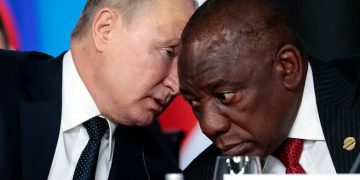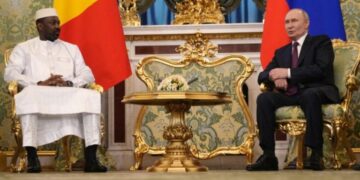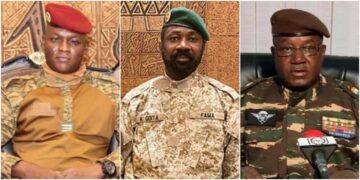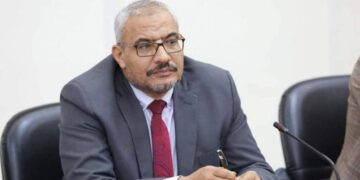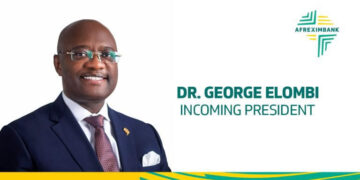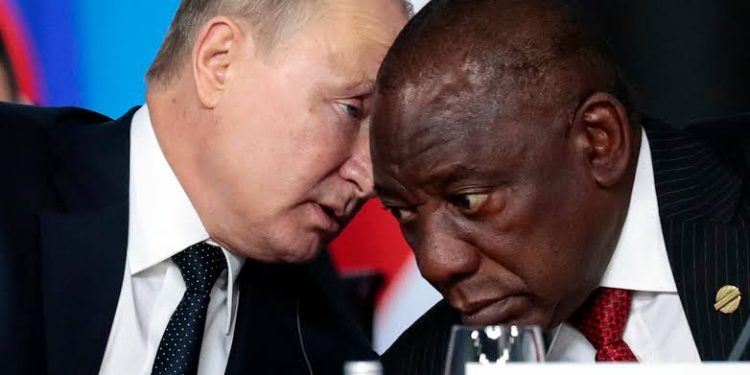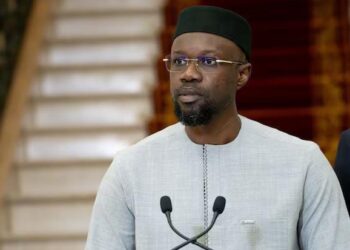By John Ikani
South Africa’s Deputy Minister, Obed Bapela, has revealed plans to modify the country’s law, granting it the authority to determine whether or not to arrest a leader wanted by the International Criminal Court (ICC).
The development comes amid intense speculation surrounding South Africa’s invitation to Russian President Putin for a visit in August.
Notably, the ICC has issued an arrest warrant for Mr. Putin in relation to the Ukraine war.
While South Africa had initially extended an invitation for him to attend a summit of Brics leaders, it remains uncertain whether President Putin will indeed be present at the event.
Pretoria has recently granted diplomatic immunity to Russian officials attending the summit, a move that has been described by the foreign affairs department as standard procedure.
The BRICS alliance, consisting of Brazil, Russia, India, China, and South Africa, aims to enhance cooperation among its member nations.
Obed Bapela stated during an interview on the BBC World Service’s Newshour program that “the proposed law would be presented to parliament in June.”
This law would grant South Africa the ability to determine who should be exempt from arrest.
Currently, South Africa is legally obligated to arrest President Putin if he sets foot on its soil due to its membership in the ICC.
However, South Africa has chosen not to denounce Russia’s incursion into Ukraine, asserting its desire to maintain a neutral stance.
In March, the ICC issued the arrest warrant for Mr. Putin, accusing him of war crimes. These allegations have been strongly denied by Moscow.
The Democratic Alliance (DA), South Africa’s main opposition party, has taken legal action by initiating a court application aimed at compelling the authorities to apprehend President Putin if he does indeed visit in August.
In addition, Mr. Bapela revealed that South Africa intends to correspond with the ICC regarding a waiver.
This pertains to Article 98 of the Rome Statue, which established the court in 2002.
While Article 27 of the statute states that no individual is immune from prosecution by the ICC, Article 98 appears to suggest that the court cannot request South Africa to arrest President Putin unless Russia agrees to waive his immunity from prosecution.
Expressing his dissatisfaction with what he perceives as double standards, Deputy Minister Bapela criticized the ICC for its handling of international justice.
He argued that the late Nelson Mandela, South Africa’s first democratically elected president, would have been disappointed with the war crimes court.
Referring to the former UK and US leaders and their invasion of Iraq in 2003, Mr. Bapela stated, “They never indicted Tony Blair, they never indicted [George W] Bush for their killings of Iraq people.”
He further emphasized that the ICC’s inequality and inconsistency pose significant concerns.
Mr. Bapela further drew attention to past instances of exemptions in international justice, such as the UK’s decision not to extradite General Augusto Pinochet in 1998.
The former Chilean dictator was arrested in London following a request by a Spanish judge to put him on trial for human rights abuses during his 17-year rule.
However, based on advice from medical experts who deemed him unfit for trial, the UK government released General Pinochet after 16 months.
He subsequently passed away in Chile in 2006.
